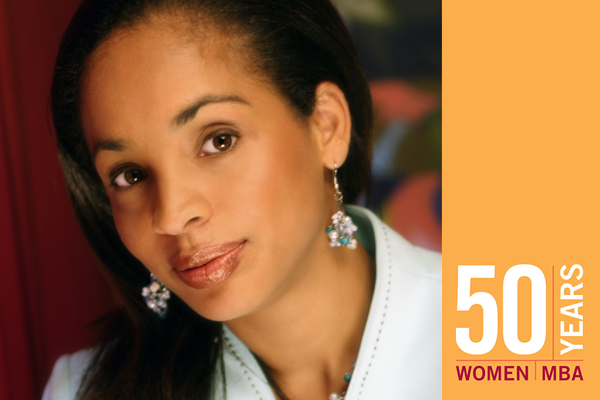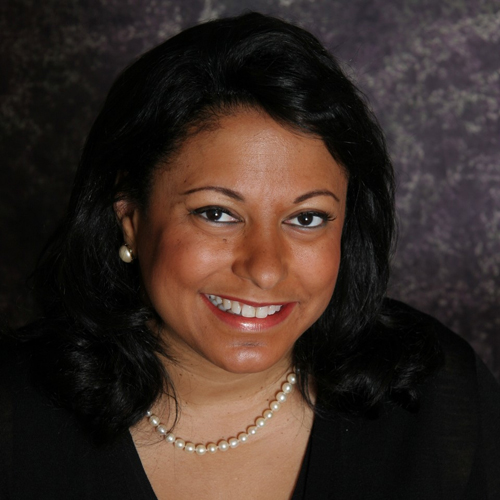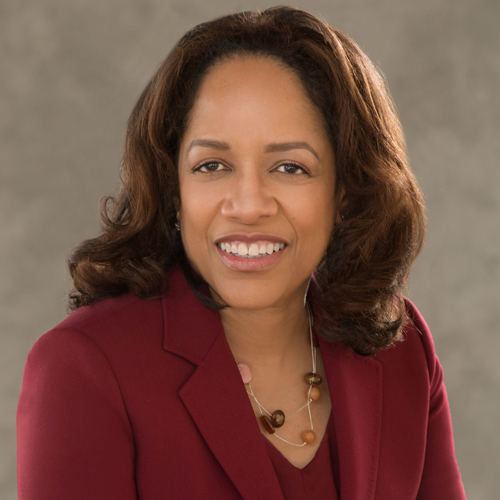
Ndidi Nwuneli
Biography
Ndidi Nwuneli is co-founder and director of Nigeria's AACE Food Processing & Distribution, an indigenous agroprocessing company, and a director at Sahel Capital Partners. She has 18 years of experience in international development and has supported a range of clients in Ghana, Liberia, Mali, Nigeria, Rwanda, and Senegal.
What impact did HBS have on your life and the life of others?
At the first HBS Africa Business Conference in 1999, I ended my speech with a quote from Ralph Waldo Emerson: "Do not follow the path! Go where there is no path and leave a trail." That was my mantra at the time and one that reflected the clear messages I was taking away from HBS. First, I was standing on the shoulders of giants—men and women of African descent who had sacrificed so that I could have a seat at the table. I benefited immensely from the support of pioneering African Americans who established programs and networks to ensure that more people of color could enter the corporate world and succeed. My exposure to these networks gave me a deep appreciation for the sacrifices that others had made to ensure that I could get my foot in the door, while also making me aware of my responsibility to leave that door open for more people of color to achieve their highest potential in life.
My parents and two older sisters were also key influences who continue to inspire and challenge me. My parents exposed my siblings and me to the concepts of patriotism and service at an early age. Despite their Ivy League educations, they both chose to devote their lives to teaching in the Nigerian higher educational system, fighting against all odds to ensure some level of excellence in their respective departments. When General Sani Abacha was president from 1993 to 1998, many Nigerian professors fled abroad to avoid persecution, but my parents stuck it out, going for many months without salaries. In addition, holidays at our home were devoted to giving to others, and trips to the Motherless Babies Home and other charity organizations formed a critical part of our education and shaped my perspective on service and commitment.
Less than a year after graduating from HBS, I resigned my job as an associate with McKinsey & Company and returned to Nigeria to serve as the pioneer executive director of the FATE Foundation, a nonprofit focused on helping unemployed women and men start businesses. Nigeria has some of the most entrepreneurial people in the world but access to financing, networks, and growth remain a challenge. According to research by Nigeria's National Bureau of Statistics, 42 percent of the microenterprises in Nigeria are owned by female entrepreneurs, yet only 13.6 percent of small and medium enterprises are owned by women—a clear indication that women struggle with business growth. I believe empowering women to start and grow their businesses is critical to Nigeria's development, but educating women is the real silver bullet. In the agricultural landscape, women form the majority of workers, but they operate at the lower end of the value chain with limited access to markets and innovation. I believe programs focused on providing business education, adult literacy, materials, processing support, and access to financing and markets will make a real difference.
In southeastern Nigeria, women are enrolling in schools at a higher rate relative to their male counterparts, but they face grim socioeconomic outcomes because society still expects these women to achieve less. For most young women in Nigeria, their primary goal is to graduate from university, move into the home of their rich husband, and quickly give birth to a son to secure their place in the marriage. Few recognize the importance of setting and achieving their professional goals and becoming economically self-sufficient.
Disturbed by this observation, I established NIA. This acronym stands for three powerful words in the Igbo language: Ndu, Life; Ike, Strength; and Akunuba, Wealth. NIA is committed to equipping young women with the skills, tools, and support to achieve their highest potential. NIA focuses its efforts on changing the mindsets of women to enable them understand that they can achieve whatever they commit to doing through hard work and discipline. It also showcases women who have achieved success in the private and public sectors and exposes these young ladies to role models and mentors. Since its inception in 2002, NIA has worked on five university campuses; its alumni manage a Big Sister program for female high school students across the region.
In 2002 I also established Leadership, Effectiveness, Accountability & Professionalism (LEAP) Africa to create a new generation of principled, dynamic, and visionary leaders who will transform the African continent. LEAP's mission is to equip a new cadre of African leaders with the skills and tools needed for personal, organizational, and community transformation. Our vision is to be recognized as the premier resource center for developing leaders who will drive Africa's realization of its full potential. LEAP has trained over 50,000 Nigerians who in turn have initiated over 1,000 change projects in their communities.
I would like to underscore that with each initiative I started, I have been fortunate to have a wonderful board of directors, visionary funders, committed volunteers, and exceptional staff who have sacrificed to ensure that our initiatives continue to survive and thrive. It is also important to recognize that I am not engaged in the daily management of these nonprofits today—instead, they are all run by dynamic women.
Most recently, I partnered with my husband, Mezuo Nwuneli (MBA 2003), to establish AACE Foods, an agroprocessing company which sources produce from smallholder farmers and processes them for the local market. The passion and sense of urgency behind the creation of this organization was motivated by three facts. First, according to a 2008 survey, 41 percent of Nigerian children under 5 years of age are classified as stunted, 14 percent as wasted, and 23 percent as underweight. Second, researchers at the University of Agriculture Abeokuta estimate that 40 to 60 percent of the fruits and vegetables grown and harvested by smallholder farmers across the county are wasted annually owing to a lack of infrastructure necessary to bring produce to market. Third, 90 percent of the processed food consumed in Nigeria is imported, due in part to food safety issues.
I currently split my time between AACE Foods, Sahel Capital (a private equity and investment advisory firm), and LEAP Africa. All three organizations are at defining moments in their histories. LEAP celebrated its 10th anniversary in 2012, and is embarking on a strategic repositioning and succession process. AACE Foods recently moved into its own factory in order to focus on scaling up sales and operations. We are also expanding our partnership with smallholder farmers across Nigeria and diversifying our product line to include complementary food products. At Sahel Capital, we are filling an important financing gap for small and medium-sized enterprises in the Nigerian agricultural landscape.
Through my experiences I have gained an even greater appreciation for the magnitude of work and the time and energy required to transform lives, communities, and countries. Sadly, we have only scratched the surface. I believe that our generation will be held accountable for the things that we failed to do to address the challenges facing our societies. I now know that leaving a trail and hoping that others follow is insufficient, especially in these trying times where the gap between rich and poor continues to widen. We must actively pull others along by making the time to mentor, coach, partner, and support causes which allow us to express our passions and, more importantly, change lives!

